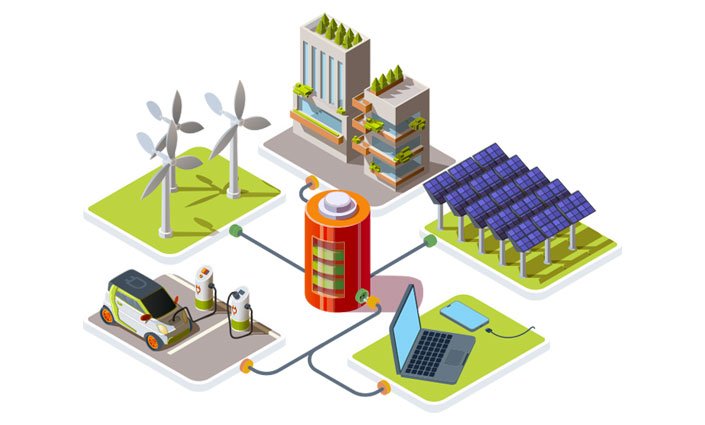
How Does Hybrid Solar System Work?
A solar hybrid system is a renewable energy system that produces clean energy for your home using solar photovoltaic (PV) panels. A hybrid solar system intelligently alternates between drawing power from the grid, batteries, and the sun. You can avoid using grid power during peak hours, saving money on your bills.
The system stores the renewable energy generated by its solar panels on the roof. The system automatically switches on and powers all of your home’s critical loads during a storm or power loss, maintaining the operation of your refrigerator, lights, and phones and iPads.
